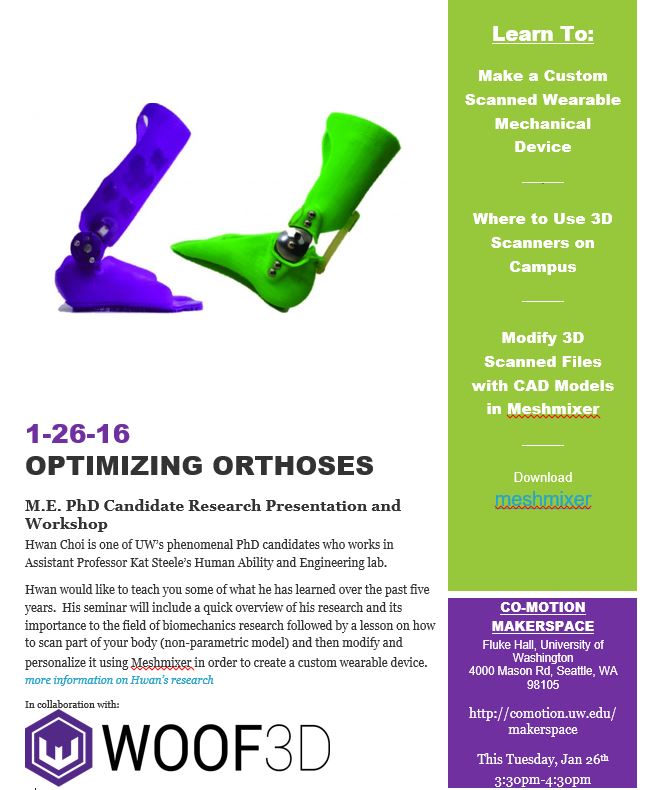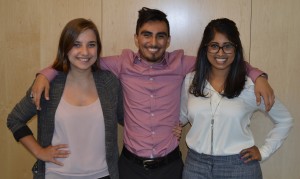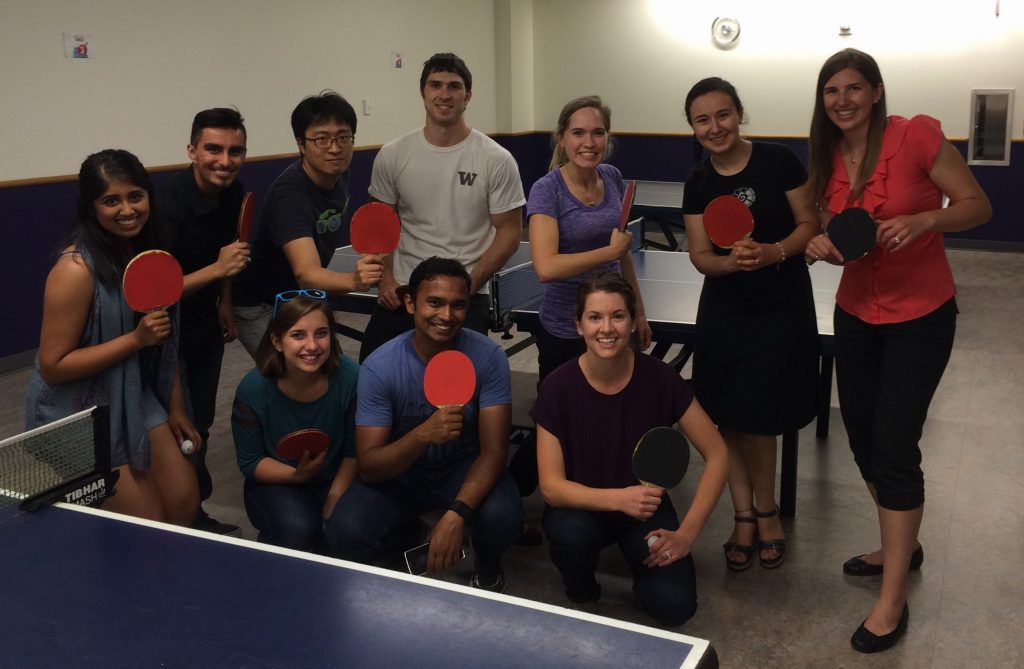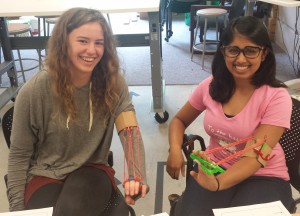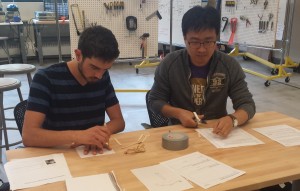After presenting her work at the national American Academy of Orthotists and Prosthetists (AAOP) in Orlando, FL, Sasha was invited to present her work locally at the Northwest chapter of AAOP here in Bellevue. Great job sharing about your research, Sasha!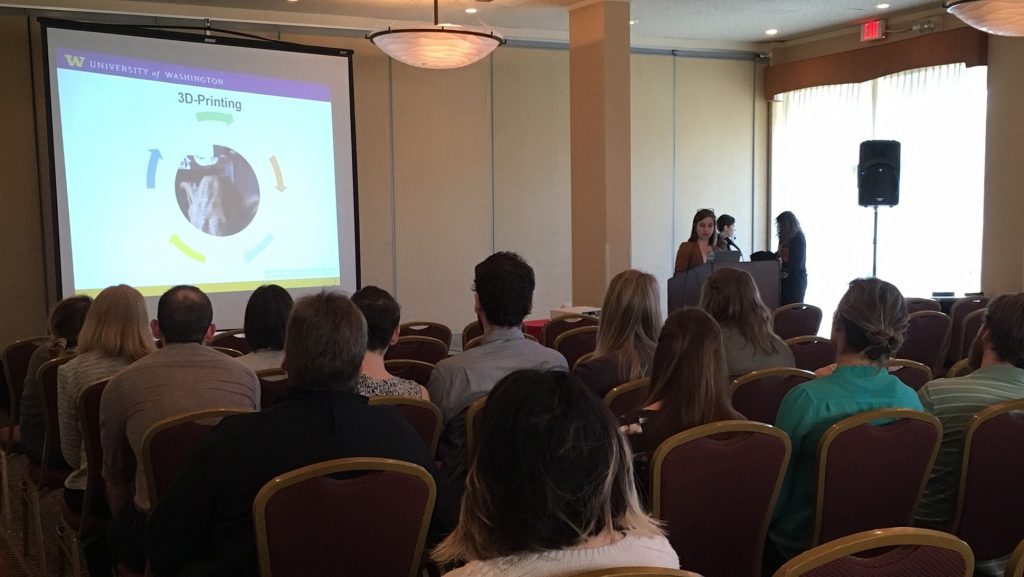
Orthosis
Optimizing Orthoses – Presentation & Workshop

Our very own Hwan Choi will be giving a presentation on his PhD research at the Co-Motion MakerSpace at the University of Washington. Join us on Tuesday, January 26th 3:30pm-4:30pm to learn more about his research “Optimizing Orthoses”, and how to modify 3D scanned files in Meshmixer in order to make a mechanically driven device for yourself. This event is collaboration with UW’s WOOF3D club. See below for additional details.
Lab featured in ME Video
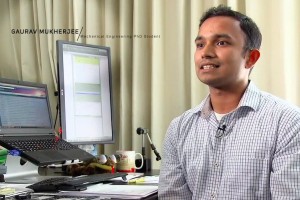 The Ability & Innovation Lab was featured in the College of Engineering’s Video on mechanical engineering. Hopefully we can help to get more future engineers interested in working with the ultimate machine! Sylvie and Gaurav did a fantastic job sharing their experiences and future ambitions working as mechanical engineers.
The Ability & Innovation Lab was featured in the College of Engineering’s Video on mechanical engineering. Hopefully we can help to get more future engineers interested in working with the ultimate machine! Sylvie and Gaurav did a fantastic job sharing their experiences and future ambitions working as mechanical engineers.
You can watch the full video here: You Tube
Celebrating Our Summar Research Undergrads
Hard to believe our Research Experience for Undergraduate’s (REUs) time in the lab is coming to an end. Lekha, Sasha, and Albert will present their work over the past 10 weeks at the CSNE this afternoon. Large progress has been made in the world of 3D printing, orthotic design, and open-source affordable electromyography systems. To celebrate their accomplishments, the lab ventured to a cafe and finished the evening with round robin table tennis. Go huskies!
Prototyping Challenge: Opening the Hand
Today we hosted a prototyping challenge at the CoMotion Makerspace with some of our partners from Seattle Pacific University. The focus of today’s challenge was to both introduce our new lab members to low-resolution prototyping and improve the design of our affordable hand exoskeleton for individuals with impaired hand function.
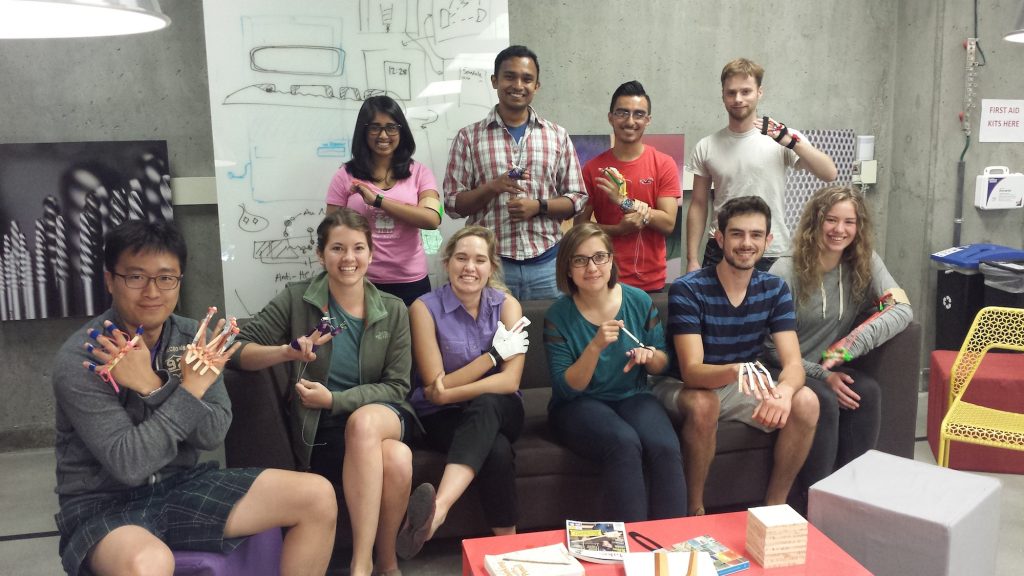
The challenge:
Individuals who have had a stroke or neurologic injury commonly lose the ability to open their hand. Physical and occupational therapy are the most common treatments and can lead to improvements in hand function with prolonged, focused practice. Exoskeletons and other robotic technology has been introduced, but these systems are typically expensive, bulky, and can only be used in the clinical environment. In this prototyping challenge, you will build and test low-resolution prototypes to explore how we might safely, comfortable, and affordably help to open the hand for individuals with neurologic disorders.
The group came up with some great ideas and designs (and some spectacular failures with important lessons). If you would like to try this prototyping challenge yourself, grab some prototyping supplies and work through our GUIDE.

